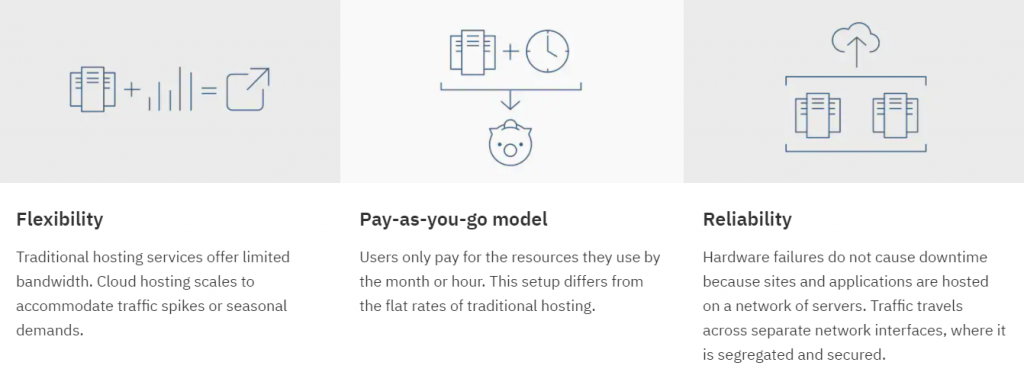How To Increase Your ROI Through Search Engine Optimization?
It is not simple to invest for your company to develop. The alternatives might look daunting in a world when business owners have to choose between hiring a sales person and investing in dozens of various types of Offline and Digital Marketing Channels. Here you find out why SEO is your greatest investment and the ROI of SEO investments you may make. We will provide a quick introduction of SEO, explain why it matters, and break down the growth you may anticipate to experience by concentrating on SEO.
Then we’ll compare SEO’s ROI against PPC’s ROI to see which investment makes the most sense for your company. We’ll finish with an estimate of when you’ll recoup your SEO investment.
What is SEO and why the SEO matters
When a potential consumers search for you online, SEO (search engine optimization) helps your business appear at the top of search engine results pages (SERPs). In internet search, according to a 2018 research by SparkToro, Google is the single most important source of website traffic. Google makes up 57.8 percent of typical site reference traffic (10x the traffic that Facebook drives to the average site).
- 72% of online marketers describe content marketing as their most effective SEO tactic.
- 81% of people do some type of online research before making a large purchase.
- 47% of consumers read 3-5 pieces of content created by a company before talking to a salesman from that company.
- Leads from search engines have a 14.6% close rate, while outbound leads (ex. cold-calling, direct mail, etc.) have a 1.7% close rate.
- 78% of location-centric mobile searches result in an offline purchase.


ROI of SEO
“OK, so you’ve persuaded me to invest in SEO,” you might be thinking, “but how can I measure the ROI to justify the costs?”
Investing in increasing your organic search traffic will cost you a lot of money, depending on whether you employ a marketing agency, an in-house marketer, or do it yourself. Prices will differ substantially from one agency to the next within this category.
Let’s start with the importance of SEO and speak about how SEO promotes sales to understand why you should include SEO in your marketing plan.
We’ll look at the return on investment (ROI) of ranking for one specific keyword.
An example keyword is the greatest method to understand the ROI of SEO.
Let’s assume you want to be the first result on Google for “downtown Denver apartments.” Every month, 1,000 individuals search for this same question (not to mention the 4,180 searches each month for other near variations).
In February 2021, ranking first in organic search results for this one query (30.55 percent click-through rate) will provide 305 quality visitors to your website per month.
If your website converts 1% of qualifying visits into consumers, this term will bring in a new customer every 10 days (or 36 customers every year).
Add in the 4,180 more searches each month for nearby variations. If you were to rank first for half of these closely related variations, you’d get an extra 66 clients per year.

ROI of SEO Compare to Paid Search ROI
We frequently speak with business owners that dedicate the bulk of their marketing money to Google Ads. Naturally, they are unsure why any of their marketing money should be allocated to SEO.
Google Ads may be a wonderful advertising channel, however here’s a comparison of Google Ads vs. SEO in terms of customer acquisition.
You would spend $6.00 per click if you bid on the aforementioned term (“downtown Denver apartments”) in Google Ads.
Setting up Google Ads for this term (which has an average click-through rate of 1.91 percent) would bring 19 qualified visitors to your website per month.
To see one client, you’d have to run Google Ads for five months if your website converts 1% of website visits into consumers.
Furthermore, a 1% conversion rate with a $6 cost per click (CPC) is $600 per customer.
While businesses ramp up their SEO efforts, Google Ads is a good investment to concentrate on (and for industries such as law firms and insurance, is a smart long-term investment as well). Switching to SEO, on the other hand, will result in exponential development in the long run (and much more affordable customer acquisition).
If you invest in Google Ads instead of SEO, you may expect to get a faster return on your investment.
How Long it Takes to See ROI from SEO
One of the most often inquiries we get is, “How long will it take for SEO and content marketing to pay off?”
Search engine optimization is a long-term investment in exponential development. It usually takes 3-6 months for SEO to get momentum. Once you have traction, your business will expand at an exponential rate.
We routinely see 100+ percent traffic increase year over year with our Rapid Growth Service for organizations with 10,000-20,000 monthly website visitors, and significantly quicker growth for firms with fewer monthly website visitors.
If that’s the case, check out our content marketing services to discover how we use long-form material to bring clients to the first page of Google.
Are you looking for a less risky investment? Year after year, our Standard Growth Services routinely deliver a 40%+ increase in traffic.
Are you ready to begin investing in SEO? Tell us a little about your company so we can develop an SEO plan that will help you achieve your growth objectives.
Cloud Hosting And Cloud Services Are Growing Faster Then Ever
What is cloud hosting?
Cloud hosting makes cloud resources available to apps and websites. Solutions are not placed on a single server, unlike traditional hosting. Instead, the application or website is hosted by a network of linked virtual and real cloud servers, allowing for more flexibility and scalability.
Key Features:
- Instead of a single on-premises server, applications and solutions are deployed over a cloud network.
- Resources can be scaled to meet the demands of the user.
- Organizations are only charged for the resources they consume.
- SQL (including MySQL) and NoSQL databases may be hosted in the cloud.
- APIs, online portals, and mobile applications are used to automate and control solutions.

Cloud hosting considerations
Security
Clients should look for a supplier that offers solutions for physical/operational, network and system, and application and data security.
Sensitive information
Enterprises that operate with sensitive data may want to explore isolating data at the hardware level, utilizing dedicated servers, or using other methods.
Support
Cloud hosting companies frequently provide tools and, in some cases, specialized services to aid in the management of the cloud-hosted environment.
Performance
Latency in performance might be a problem at times. Organizations should guarantee that their Internet connections are stable and dependable.


BEST CLOUD HOSTING
Cloud hosting plans resemble virtual private server (VPS) web hosting plans in that you pay for a specific amount of web space, RAM, CPU time, and bandwidth up front. However, because these resources are distributed across several devices rather than just one, altering your plan later – for example, adding another gig of RAM – is usually as simple as moving a slider, with the extra power coming online in seconds.
Additional small company web hosting choices exist, such as ecologically friendly green web hosting. Furthermore, cloud hosting is scalable and may be a suitable alternative to a dedicated server with a colocation provider, and managed web hosting services are available.
Everything from email hosting to updating your corporate server may be done with cloud hosting. If you want to get your hands dirty, anticipate the virtual servers to run Linux rather than Windows.
- Google Cloud
- Amazon AWS
- IBM Cloud
- Microsoft Azure
- Hostinger
- Hostgator
- Cloudways
- Bluehost
- Dreamhost

Technical View on the Cloud hosting and services
From an IT standpoint, both the customer and the service provider want the flexibility of quick solution deployment for changing business needs. It’s difficult to deploy a new solution within weeks in a well-established organization with a lengthy history of IT projects without significantly compromising current infrastructure or available financing. Cloud hosting offers the benefits of faster solution deployment as well as cheaper installation and operational costs.
Today’s businesses have enough expertise with cloud hosting to prefer it to traditional application deployment. It is not only faster to deploy in the cloud, but it also assures that the deployment’s scalability, availability, and performance requirements are met.
Cloud service providers (of which there are many) have also improved their services and delivery models, making it much easier to fulfill service-level agreements (SLAs) with more confidence and success. Cloud hosting solutions have emerged to provide centralized and streamlined IT management and services.
This centralized management method assists both the service provider and users in automatically creating, providing, and tracking SLAs over the web. The majority of cloud hosting services are given instantly through an easy-to-use, web-based user interface for software, hardware, and support requests. Updates to software and hardware can also be done automatically. It’s as simple as purchasing online!
As a result, cloud hosting continues to be a popular deployment choice for customers across all sectors. If you haven’t already done so, now is an excellent moment to investigate cloud hosting as a strategic alternative.
How Important Is A Domain Name For Your Business-Organization
Domain name to choose?
One of the most crucial aspects in creating your brand or organization is selecting a domain name. Your domain name is frequently one of the first things people see, and it may influence how they perceive your website and brand. A well-selected domain name may enhance user interest and generate online traffic, but a poorly chosen domain name can have the opposite effect.
Any domain name, after all, is the most important aspect of your website. It may make or destroy your business, therefore picking the right domain name is critical.
But, hold on a second, why is your domain name so crucial?
It’s all about making a good first impression. The first thing your visitors will notice is your URL. A good domain name may leave a favorable and lasting impression on visitors, but a poor domain name might drive them away.
It has an impact on SEO. Exact match domains (EMDs) are no longer required, but keywords in your domain name might still help you rank higher in search engines.
It establishes your company’s identity. Your domain name is a branding opportunity, which we’ll discuss in a moment. Brand recognition may be improved with the appropriate domain name.
While selecting a name that reflects and promotes your business isn’t an exact science with few definite rules, there are certain guidelines to follow.
How to Choose a Good Domain Name

Length
Less is more when it comes to domain names. Users are more likely to locate you with shorter names since they are easier to remember and write. When there’s less to read, it’s also simpler to stand out. It’s best not to use more than 2-3 words.
Simplicity
You want visitors to remember and type your domain name correctly. It might be difficult to recall and spell complicated or rare words or names.
Keywords
Relevant terms aid users in finding you in a search and quickly recognizing what you do. Keywords might be related to what you do or sell (for example, “coffee” or “cleaning”), as well as your location. Incorporating your location (such as “miami”) into your domain name may also assist you in reaching out to local consumers and users.
Name of the business
Your brand should be reflected in your domain name, and vice versa. Because brands take time to grow, adding your distinctive brand name in your domain may help you stand out, earn awareness, and improve website traffic. Make cautious not to use any existing brand names or trademarks while coming up with your brand name and domain name.
Name of the website
While it may seem self-evident, your domain name should be the same as, or as near to, your brand name as feasible. You don’t want visitors to be confused if they put in your domain name and end up on a different website.
Good, but not flawless
Many individuals waste time attempting to come up with the perfect name when they might be spending that time creating a fantastic brand around a perfectly excellent domain name. Don’t put off beginning your business or project because you can’t find the right domain.
Why Do You Need A Website For Your Business
Regardless of industry, a company’s internet presence may have a significant influence on its performance. Some businesses still don’t know that the bulk of their clients will check their website before making a purchase in this day and age.
A good internet presence, particularly a website, may make or break your ability to generate more money. Yes, the quality of your website has an influence on your outcomes, but the point of this essay is to emphasize the necessity of having one.
The good news is that you can find a solution that works for you. If you’re still not convinced, consider the following reasons why having a website is critical for your business:
Have a website for your business
Credibility
One of the most important reasons to having a website for your company is to improve its reputation. There are probably numerous companies that provide a service that is comparable to yours. Having a website that looks beautiful and effectively delivers excellent information to your customers is one method to stand out.
People may doubt your validity as a company if you don’t have a website. Having a website allows you to make a fantastic first impression and reassure customers that you are a legitimate company.
Brand
One of the most essential things you can do is to show your brand to potential clients. Customers are more likely to buy from you if you clearly define who you are, what you represent, and what you stand for.
This is also something that may help you stand out from the crowd. It’s difficult to achieve this without a website since consumers can’t quickly access excellent and accurate information about your company.
Leads
One of the most fascinating reasons to having a website for your company is that it may enhance your lead generation opportunities.
People will know how to contact you if they find you online, get interested in your product or service, and want to learn more, due to the information on your website, which provides you the potential to grow your sales. Despite the fact that websites have a cost, they provide a good return on investment when used appropriately.
Organic Traffic
You have a possibility of appearing in Google search results once you’re online and have an SEO-optimized website. This implies that if someone searches for a product or service, your website may appear in the search results. This provides you with the potential to significantly expand your consumer base.
Saving You Time + Customer Service
Many companies receive calls from potential or current clients inquiring about their location and hours of operation. When you miss a call, the consumer is dissatisfied. Calls can also divert your employees’ attention away from the most critical aspects of your business. These calls may be reduced with the use of a website, which can also boost internal efficiency. At the same time, it assists clients in locating valuable information without having to contact, resulting in a better overall user experience.
Updates And Announcements
It’s simple to make updates and notifications to your consumers because your website is available 24 hours a day, seven days a week. It’s a method to keep them informed about what you’re up to. When something is extremely relevant to them, you have a better chance of upselling them.
Digital Marketing
You’ll probably want to drive visitors to a website or landing page if you want to use digital marketing to boost leads and expand your business. To accomplish this successfully, use historical traffic to your website to target the most qualified consumers and obtain the most return on your ad investment. This is something that can’t be done later, so even if you don’t intend on running advertisements right now, it’s important to have your website up and operating as soon as possible.
Websites have become indispensable in today’s corporate world. If you haven’t already done so, I strongly advise you to do so. You may enhance it over time, but the most important thing is to get started.
How To Make Money With Blogging-Latest Trends
Advertising is typically the first thing that springs to mind when considering how to generate money from your blogsite.
Yes, you may generate money from your website’s advertisements, but there are many other methods to monetize your blog’s content. Here are a few strategies that have shown to be effective:
Affiliate Marketing Can Help You Make Money
Affiliate marketing is when you use specific tracking links to promote a product or service to your audience, and you are paid a referral commission every time someone buys after clicking your link.
When you assist a friend in opening a bank account at your bank branch, this is an example of affiliate marketing in action. They usually give you a gift card or some type of incentive.
Many businesses and services on the internet offer affiliate programs that you may join in the same way. For every industry, there are affiliate programs (niche)
If you want to get started with affiliate marketing, consider the items you already use and think about what your readers might be interested in. You may then see whether they have an affiliate program that you can join.
You may choose from a large number of goods to promote:
Amazon, ShareASale, Commission Junction are service that allows you to earn money.
Incorporate Google AdSense into your blogsite
Google Adsense is a simple method to monetize your site. All you have to do is embed a Google script on your website and start displaying advertisements.
Every time a user clicks on the ad, you will be compensated. CPC advertisements are what they’re called.
What exactly is CPC? The acronym CPC stands for “cost per click.” When you use Google Adsense to display CPC advertisements, you are paid a fixed amount each time a visitor clicks on one.
The advertiser determines the cost per click. (This differs from CPM advertisements, which pay for ad views rather than clicks.) CPM stands for “cost per thousand impressions,” with M denoting 1,000.)
When you’re initially beginning out online, Google Adsense is a wonderful place to start.
Get Paid to Write Reviews
You may generate money on your blog by writing paid reviews, which is similar to sponsored articles.
This is a somewhat different monetization approach than a review site with affiliate links. Instead of getting paid for writing a review, you get to try out goods relating to your expertise for free.
This may be done in a similar way as acquiring sponsored postings. You’ll want to write product reviews for goods that are related to your niche and that your target audience would be interested in.
You can approach businesses on your own and inquire for compensated reviews. Websites like PayPerPost can also help you connect with businesses that might be interested.
Do what you love and the money will follow.
Marsha Sinetar







